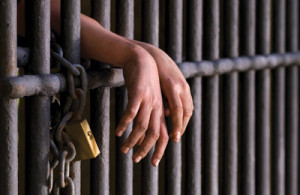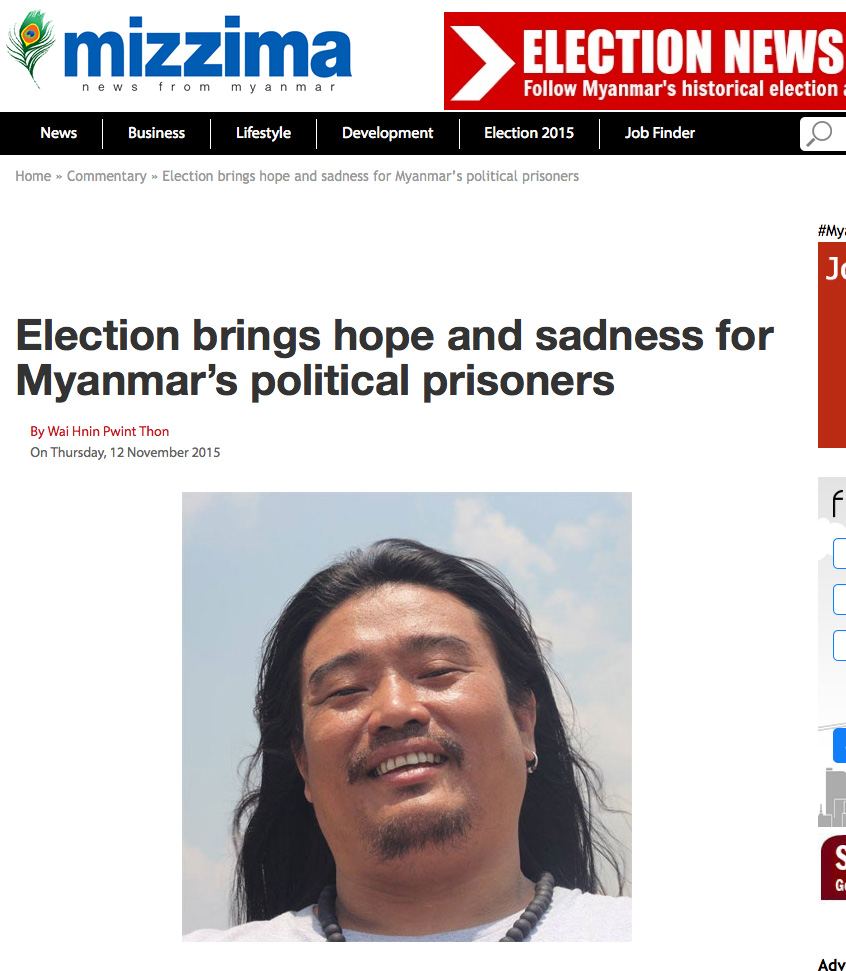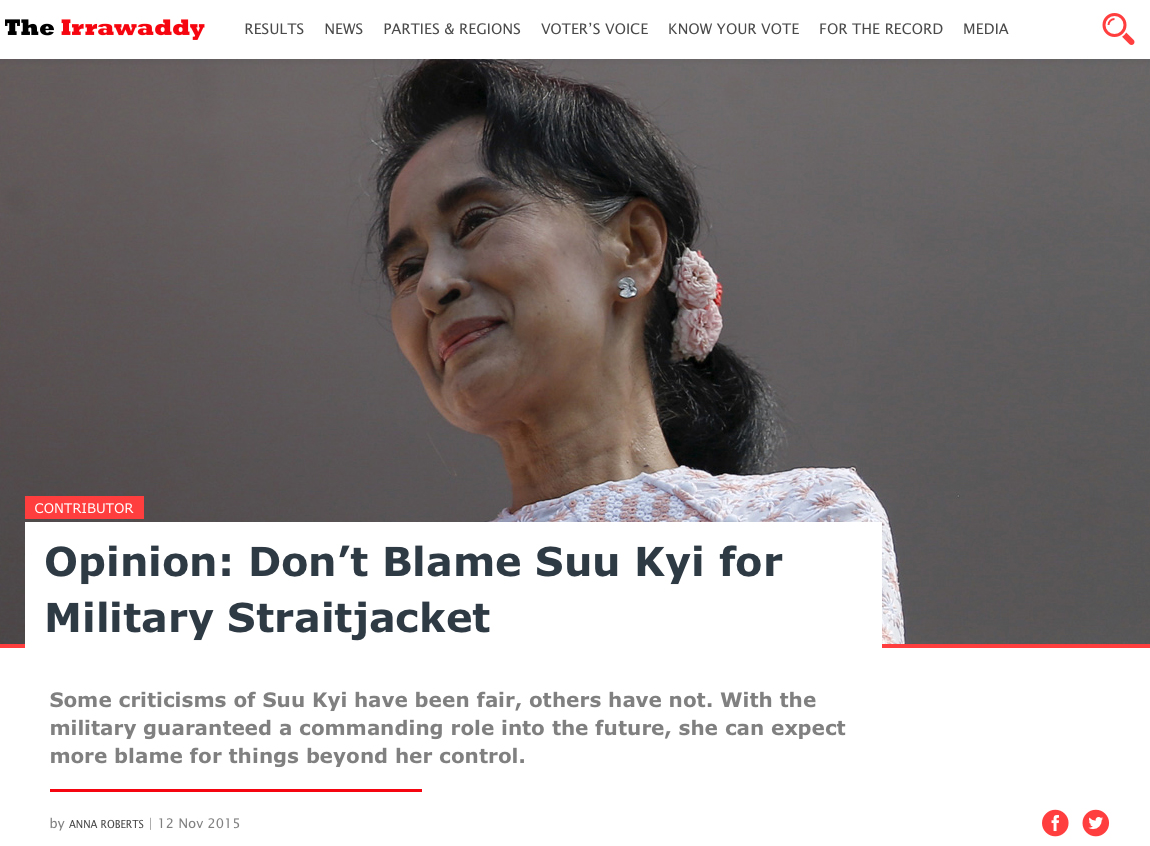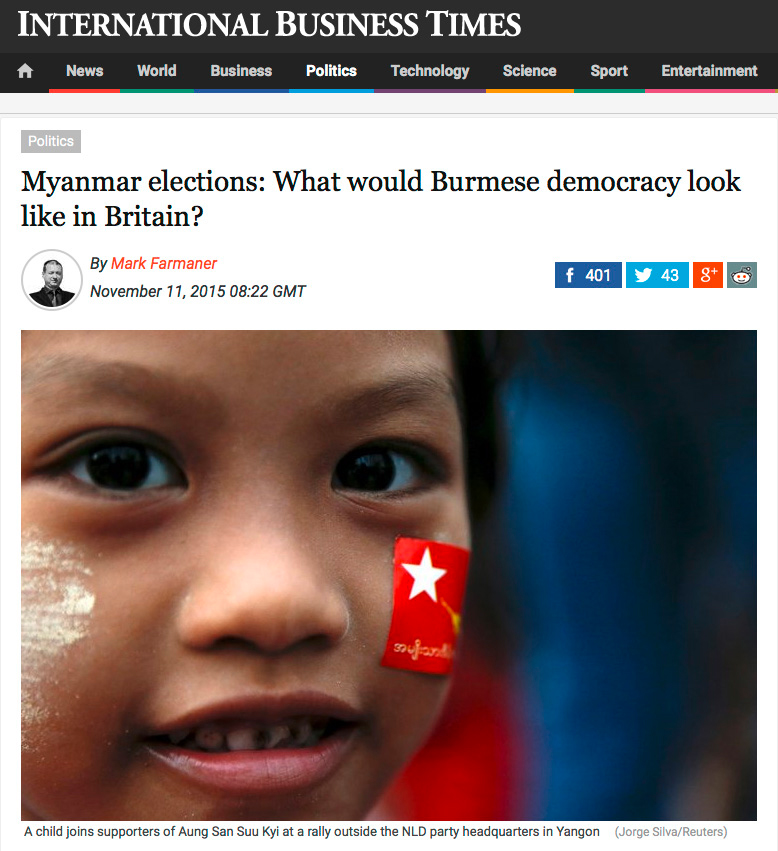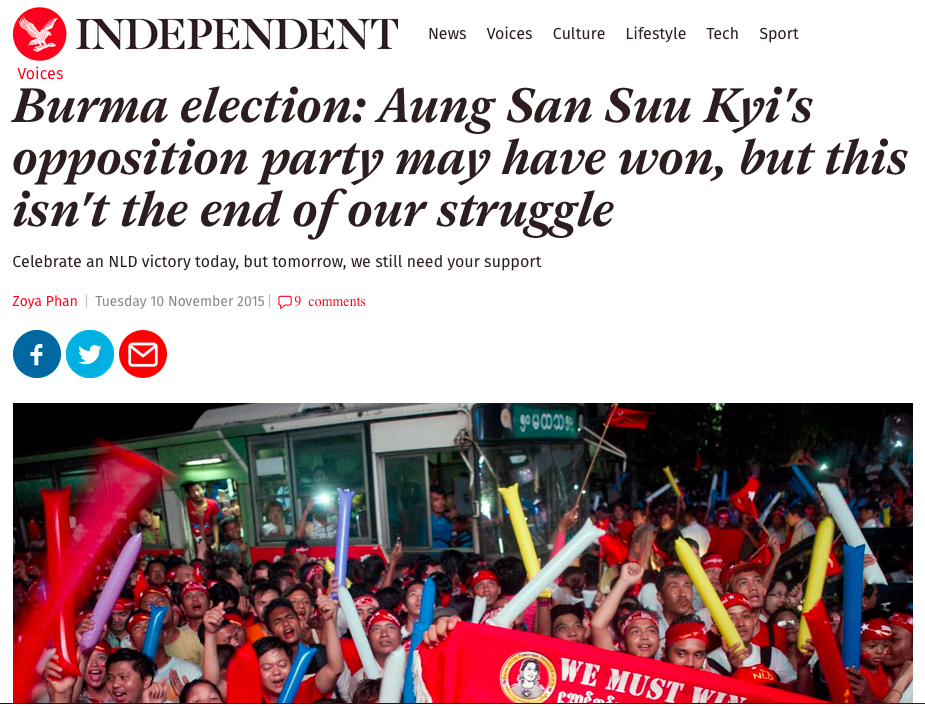At the UNISON Women’s Conference
At the UNISON Women’s Conference in Brighton today, where hundreds of delegates are taking action to help stop rape and sexual violence being committed by the Burmese army. Take action yourself here.
‘This is hell’: British man held in Myanmar for 14 months without charge pleads for help
Article in today’s Guardian. Niranjan Rasalingam is an accountant from Croydon who has now spent more than a year in Insein jail in Burma without being formally accused of a crime.
Last year Burma Campaign UK wrote to British Foreign Minister Hugo Swire MP calling on him to act to secure the release of Narinjan, he refused.
Revolving door of political prisoners keeps spinning
Good news that around 52 political prisoners were released this week, but many more remain in prison.
Burma Campaign UK condemns the sentencing this week of Patrick Kum Jaa Lee for six months for a Facebook post he denies even making. Burma Campaign UK also condemns the arrest on immigration charges of U Gambira, one of the leaders of the pro-democracy uprising in 2007, for what are clearly political reasons.
The events of the past week highlight how there has been little fundamental change with the problem of people being jailed for their political beliefs, ethnicity or religion. It also highlights how President Thein Sein did not deliver on promises to free all political prisoners. Almost all those freed in recent releases where jailed during his Presidency.
The formation of a new NLD-led government, despite having to share power with the military, presents an opportunity to start to address the issue of political prisoners once and for all.
What now for the peace process in Myanmar?
Article in the Myanmar Times by Zoya Phan, Campaigns Manager at Burma Campaign UK
With the National League for Democracy likely to form the next government in Myanmar, is there finally an end in sight for conflict that has plagued the country since independence? Probably not. The NLD may have the will to bring peace, but even in government, it won’t have the constitutional power to do so.
Most ethnic people are fully aware that the reform process initiated by President U Thein Sein is a sham – more about image than real reform. The first step in the reform process was to bring in an undemocratic constitution that increased central government control over ethnic states, rather than give us more control over our lives and our lands. At the convention drafting the principles of the constitution, chaired by U Thein Sein, he rejected every proposal made by ethnic delegates for more autonomy, more rights and protection of our cultures.
President U Thein Sein’s government has tried to bribe, bomb and bully ethnic organisations into signing ceasefires, and then when “peace” is supposed to have arrived the number of Myanmar army soldiers in our lands increases rather than decreases. Divide and rule tactics are used, promises made and broken, and what little trust some may have had has evaporated. The goal of President U Thein Sein is to force the submission of ethnic people under the undemocratic 2008 constitution, which he drafted. A federal Myanmar where ethnic people have equal rights is not the vision of the current government and military.
The NLD is different. They have supported a federal system whereby ethnic people have more control over their lands and their destiny. They have committed themselves to peace and to respecting human rights. An NLD government is going to be much better than having a military-backed government.
The problem is that while Myanmar, for the first time since independence, may have a government more willing to accept the rights and aspirations of ethnic people and agrees to some kind of federal system, the military have carefully ensured that an NLD government will be powerless to actually implement any agreement.
An NLD government could hold peace talks, but it won’t have any constitutional power over the military. The next government could be talking peace while the Myanmar army wages war – as is the situation now. The military is not accountable to anyone and the constitution has guaranteed its impunity. Just because an NLD government is genuine in its intentions and the Union Solidarity and Development Party government wasn’t, it won’t change the facts on the ground.
Even if peace talks between an NLD government and ethnic organisations reached a successful conclusion, no agreement could be implemented. This is because any deal would have to involve constitutional change, and that can’t happen without the support of the military, as they have 25 percent of seats in parliament – enough to block any constitutional change. The military will undoubtedly veto moves to devolve power to a more federal system.
It is important to remember that it was discussions by the U Nu-led government in 1962 to give some autonomy to some ethnic groups that helped trigger the military coup that year. Fear of a repeat could limit the willingness of some NLD leaders to consider the fundamental changes needed to bring lasting peace to Myanmar.
The constitution gives the military the power to retake direct control of the country if they decide national unity is threatened. This is undoubtedly a deliberate tactic by the military to try to stop the NLD from increasing the rights of ethnic people. But the NLD must not allow itself to be threatened or blackmailed into denying ethnic people their rights. The military have spent years planning for this transition to a new hybrid system, one with a democratic face but with the military still having ultimate control. Retaking direct control of the country is the last thing they want to do.
Many ethnic people may benefit from an NLD government, but in practice the election results won’t bring ethnic people any closer to our dreams of having our rights protected, and more autonomy to control our lands and our natural resources. The international community may call this a significant step in Myanmar’s transition to democracy, but the key issue responsible for dictatorship in the first place, the refusal of the military to accept the rights and aspirations of ethnic people, is no closer to being resolved. Ethnic people will continue to need international support until there is lasting peace in Burma.
Election brings hope and sadness for Myanmar’s political prisoners
Wai Hnin Pwint Thon, Campaigns Officer at Burma Campaign UK, writing in Mizzima:
As millions turned out to vote with hope in their hearts on Sunday, one of the groups of people unable to take part were Myanmar’s political prisoners.
Some of the very activists whose struggle and sacrifice helped bring about the elections are behind bars, unable to take part. They couldn’t vote, couldn’t stand as candidates, and couldn’t take part in campaigns. They were disenfranchised precisely because they have spoken up for democracy and human rights. How can the election be considered credible while political prisoners are not only denied their freedom, they are also denied their democratic rights as well?
It is an irony that people who have fought for democracy for a long time are not able to have their say in this election. These activists in prison should be treated as heroes, but they are being denied their opportunity to be part of the process. They should have been at the front of the queue to cast their vote, but they were locked up in prison instead. Even during the election campaigning period, some activists were arrested and imprisoned for making jokes about the Army chief.
One of them, Patrick Kum Jaa Lee is in jail for a Facebook post he disputes he even made and is suffering from bad health in awful prison conditions. He isn’t even being allowed out on bail. What law has he broken and what danger does he present? None. There might be more freedom of expression now, but it is freedom on a short leash.
The issue of political prisoners used to dominate domestic and international debate about the situation in Myanmar. Even the British government now admits that President U Thein Sein broke his promise to release all political prisoners by the end of 2013. Were there any consequences for lying to the international community? The opposite, his government received more international support. The message to the Myanmar government was clear. The international community was prepared to tolerate a certain number of political prisoners without it affecting diplomatic or trade relations. From then on, the numbers of political prisoners started to grow again.
There are more than a hundred political prisoners in jail now, and around 500 more awaiting trial. If the farmers jailed or awaiting trial for protesting land confiscation are included, the numbers rise to close to 1,600. Not far off the estimate of 2,100 political prisoners before reforms began.
Sadly, though, it is not only the international community which dropped the issue of political prisoners as a priority. Senior pro-democracy politicians rarely talk about them. It wasn’t a dominant issue in the election campaign.
Political prisoners will be sad to be excluded from the election, but will also be hoping that if the NLD are able to form a government it will be good news not just for Myanmar, but for their own prospects of release.
The NLD will have to work within the 2008 Constitution, which gives the military the power to appoint the Home Affairs Minister. With the police, justice system and security services still under military control, arrests and jailing of political activists can still happen, and the NLD unable to stop it. An NLD President can order amnesties for political prisoners, and start paying compensation to them and their families. An NLD government could also move quickly to start repealing repressive laws used to jail activists. President U Thein Sein didn’t repeal these laws, he just changed the way they were applied.
But without direct control of the police, there is a danger that the revolving door of activists in and out of jail could continue. Activists could still be arrested and face long periods in jail while on extended trials, only to be released as soon as they are convicted as the President then has the power to release them.
One of the first steps a new NLD government should take is to set up a new review committee to look at the problem of political prisoners. This committee should include genuine civil society and have powers to investigate cases, ensure political prisoners are released and compensated, and review laws which need to be repealed or revised. The decision on whether a political prisoner remains in jail or not should not be at the whim of a president. There needs to be a proper independent judicial process.
These elections don’t mean an end to political prisoners in Myanmar, just as they don’t mean Myanmar itself is free. Our struggle isn’t over yet. We are not even close. As long as a single political prisoner remains in jail, it is the responsibility of all of us to work for their release.
Don’t Blame Suu Kyi for Military Straitjacket
Anna Roberts, Executive Director of Burma Campaign UK, writes in The Irrawady:
Over the election period, there has been an obvious focus on Aung San Suu Kyi and her future political role in Burma. Many articles and comments have been very critical of both her style of leadership and her statements, or lack of, on many of the most serious human rights issues facing the country. In particular, she has come in for sustained criticism over her failure to seriously address the persecution of the Rohingya and the decision not to have a single Muslim National League for Democracy candidate.
Some of the criticism is justified. It is deeply disappointing that Aung San Suu Kyi has been largely silent on the biggest human rights crises in Burma, notably the crimes committed against the Rohingya and the abuses committed by the Burmese Army in Kachin and Shan state.
The failure of Aung San Suu Kyi’s leadership to seriously challenge the rising tide of anti-Muslim prejudice and Buddhist nationalism has allowed Ma Ba Tha and others to relentlessly push their agenda of hatred, and has been a missed opportunity to confront bigotry and offer a principled, alternative vision for an ethnically and religiously diverse country.
On the other hand, is anyone seriously arguing that an NLD government won’t be a big improvement over one led by Thein Sein? Criticism of Aung San Suu Kyi should be kept in perspective and not deflect from the real causes of Burma’s problems.
Aung San Suu Kyi hasn’t committed any human rights violations. She is not supporting attacks against Muslims or spreading anti-Muslim hatred. She is not responsible for an army that has used rape and torture as weapons of war and deliberately targeted ethnic civilians. She is not locking up political prisoners for their peaceful activism. She has not presided over the systematic repression of the Rohingya or been implicated in ethnic cleansing, crimes against humanity and what Yale University’s Human Rights Clinic has deemed a potential genocide.
President Thein Sein, however, is ultimately responsible for all of the above. So it is surprising that we do not hear even a fraction of the criticism that is leveled at Aung San Suu Kyi directed at Thein Sein. In fact, quite the reverse. Despite years of broken promises of reform, and leading a regime responsible for some of the worst human rights abuses in the world, Thein Sein is given the benefit of the doubt. There may be some criticism of the military-backed government, but Thein Sein seems spared such scrutiny. He is still presented as a reformer trying to keep military hardliners in check, a statesman leading the country through turbulent times.
Yet there is no evidence to suggest this is the case. Thein Sein was at the heart of Burma’s military dictatorship for decades. He presided over the drafting of the 2008 Constitution, which secures military control at every level of government. Thein Sein’s legacy is clear.
It is of course essential to scrutinize political leaders and hold them to account, but in the case of Burma, there seems to be a narrative emerging that blames the victim not the oppressor. Aung San Suu Kyi is herself a victim of the policies of Burma’s military dictators. She won the election in 1990, but was denied power. She spent years under house arrest, often portrayed as being inflexible, hardline and almost responsible for her own detention. She has faced attempts on her life. And she is constitutionally barred from being President, despite the fact that it is clearly, overwhelmingly the will of the people.
Aung San Suu Kyi has yet to have the opportunity to transform the National League for Democracy’s human rights commitments into action. With the NLD’s anticipated landslide election victory, there will be high expectations for fundamental change after so many years of military rule. But under the current Constitution, it will have very limited scope to prevent some of the most serious human rights abuses from continuing.
The military will still be in control of key areas such as the police, security services and justice system. The army will be beyond the control of any civilian government and free to continue attacks against ethnic people, as was the case on the day after the vote, when the Air Force reportedly bombarded the headquarters of the Shan State Army-North in Kyethi. The military will continue to hold a veto over efforts to make the Constitution more democratic.
Yes, an NLD government will need to be held to account for the decisions and policies it makes, but that needs to be balanced with the fact that it will be a government that is severely restricted in what it can achieve.
Will Aung San Suu Kyi be blamed for the political straitjacket created by Thein Sein and the military?
As the new political landscape takes shape, it will be important to remember who is really responsible for the fact that Burma is not yet a genuine democracy that respects human rights.
Myanmar elections: What would Burmese democracy look like in Britain?
Article by Mark Farmaner, director of Burma Campaign UK, in the International Business Times
People are rightly celebrating what looks like a huge victory for Aung San Suu Kyi’s party, the National League for Democracy, in the elections held in Burma on Sunday (8 November). But is this really the end of military rule? Not by a long shot.
Applying Burma’s military drafted constitution and rules of Sundays election to the political scene in the UK reveals the scale of the challenges a new NLD government will face, and why the people of Burma will need our continued support to win genuine freedom for all.
- The election was only for 75% of the seats in the British parliament. After the election, the head of the British Army chooses soldiers for the other 25% of seats.
- The fee for standing as a candidate was more than the average annual income, so smaller parties struggled to field many candidates.
- The head of the main opposition party is banned by law from becoming prime minister even if his or her party wins the election.
- While the election was going on, the British army was attacking civilian villages in Scotland and Wales. British soldiers were raping women, torturing and shooting farmers, bombing and burning villages, and thousands of people were fleeing for their lives. Two civilians were shot and killed by the British army on election day. The British government and British army stopped UN and other aid agencies from giving aid to refugees fleeing the attacks. This was barely mentioned during the election campaign.
- Voting was cancelled in large parts of Scotland, Wales and Northern Ireland, ostensibly for security reasons, which by co-incidence have voters who don’t tend to vote for the ruling party.
- The old parliament can carry on sitting for almost three months after the election, with MPs who were not re-elected passing laws which the population opposes.
- When the new parliament does finally get to sit, it chooses the prime minister. The prime minister does not have to be an MP. If the person chosen as prime minister is an elected MP, they have to resign from parliament.
- The British soldiers in parliament get to choose one of two deputy prime ministers. This will be serving soldier.
- After parliament chooses the prime minister, the prime minister does not have to go to parliament again. There is no weekly question time. The prime minister doesn’t have to answer questions from MPs.
- The prime minister chooses most government ministers. These ministers do not have to be MPs. If an MP is made a government minister, they have to resign from parliament. The parliament has no power to call on ministers to answer questions on policy.
- Regardless of who wins the election, the head of the army chooses the home secretary, the defence secretary, and the ministers for Scotland, Wales and Northern Ireland. These are usually serving soldiers. As such, the British government will not have control over the police, justice system, MI5 or MI6, the military, or over key areas of policy in Scotland, Wales and Northern Ireland.
- The defence secretary answers to the head of the army, not the other way round.
- The army sets its own budget, not government or parliament. The military budget is far higher than combined spending on the NHS and education.
- The emergency COBRA committee is a permanent body with fixed membership. It is constitutionally more powerful than the British government and parliament. The army chooses six of its eleven members, so they always have a majority.
- The British government and parliament cannot change the way Britain is run in any constitutional way, even if every single elected MP supports the change, unless the army also agrees with it.
- The army controls lots of Britain’s biggest companies, even the biggest brewery, and keeps the profits for themselves. The profits don’t enter the official government budget.
- The army has the constitutional power to take power over all or part of the country if it decides there is a threat to national security or unity.
We would never accept this in the UK, so how can we tell people in Burma that something is better than nothing, that at least this is better than what there was before, that progress is being made, and to be patient? The people of Burma have the right to the same freedoms as we have in the UK. Burma isn’t a democracy yet.
Think Burma Is a Democracy Now? Think Again.
Mark Farmaner, Director of Burma Campaign UK, writes in the Huffington Post:
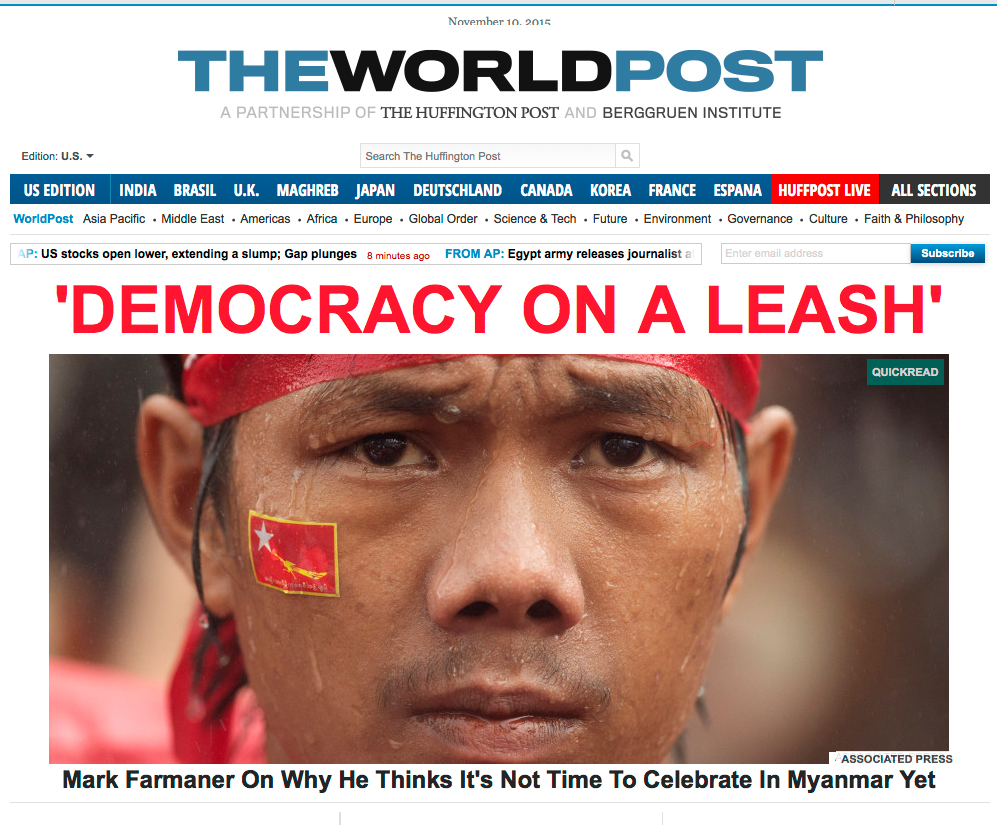 For millions of people in Burma and for supporters of Aung San Suu Kyi around the world, Sunday’s election appears to be the fulfillment of their dreams. Aung San Suu Kyi’s National League for Democracy (NLD) looks to have won a landslide victory, ending more than fifty years of military rule. Democracy has finally arrived. Or has it?
For millions of people in Burma and for supporters of Aung San Suu Kyi around the world, Sunday’s election appears to be the fulfillment of their dreams. Aung San Suu Kyi’s National League for Democracy (NLD) looks to have won a landslide victory, ending more than fifty years of military rule. Democracy has finally arrived. Or has it?
Burma’s generals didn’t suddenly wake up one day believing in democracy. They wanted to end sanctions and their pariah status, but they didn’t want to give up control of the country. They knew that couldn’t win an election. The NLD are far too popular. Their solution? A shiny new constitution which has the appearance of a democracy, but which still gives them ultimate control.
When the new Parliament sits, the realities are going to start hitting home. Newly elected MPs will be joined by 116 MPs, 25 percent of the total, who are appointed by the head of the army. These MPs will choose one The generals despise and fear Aung San Suu Kyi. They put a special clause in the constitution that a president can’t have children who are citizens of foreign countries, which she does, to prevent her becoming president.
The head of the Burmese army also gets to choose key government ministers. The Defense Minister, Home Affairs Minister and Border Affairs Minister will all be serving soldiers. This puts the armed forces outside of the control of the new government. The government will also not have control over the police, justice system, security services or issues in ethnic sates, critical for ending conflict which has lasted for more than 60 years.
In terms of human rights, this is a disaster. The Burmese Army has been committing horrific human rights abuses against ethnic minorities in the country. Rape is used as a weapon of war, farmers are tortured and executed, and villages are bombed and burned. Legal experts say the abuses taking place meet the legal definition of war crimes and crimes against humanity. An NLD government will be virtually powerless to stop this.
The issue of political prisoners, which has also plagued the country for decades, won’t be going away. During the election campaign, people were thrown into jail for Facebook posts that the army didn’t like. Without control of the police or being able to create a truly independent judiciary, this is another area where the NLD will be hamstrung. People could still be jailed for their political beliefs or actions.
An NLD government can’t even use the military budget to try to reign in the army. The army sets its own budget. The government has to make do with the money left over. No surprise then, than military spending is higher than health and education combined.
Just in case an NLD government still tries to implement policies the military doesn’t like, above both parliament and government is a National Defense and Security Council. Constitutionally, it is the most powerful body in Burma. It has eleven members, six of whom come from the military, so it has a built-in majority. It could overrule decisions made by an NLD government.
As if all these checks on the power of the government were not enough, the military also inserted clauses in the constitution that give it the right to retake power for vague and unspecified “national security” and “national unity” reasons. Basically, any time they like. Every decision an NLD government makes, it will have to keep looking over its shoulder, judging how far it can safely go.Given all this, it’s not surprising that one of the top priorities for Aung San Suu Kyi and the National League for Democracy is constitutional reform. The generals realized this as well. That’s where the 25 percent of seats reserved for them in parliament comes in to play. To change the constitution, more than 75 percent of MPs have to vote for it. This means the military have veto power over constitutional reform. No change unless they decide they want it.
Despite all these problems, having an NLD government, however hamstrung, will undoubtedly be better that what came before it. But it isn’t democracy, and it isn’t acceptable. It can’t be described as a step in a transition process, because under the constitution, no further steps towards a genuine democracy are possible.
Burma now has a hybrid system of military rule and democracy. It’s democracy on a leash. It might be good enough for much of the international community, who keep patronizing Burmese people by telling them these things take time and no transition is smooth, but it isn’t good enough for Burmese people. In Western countries, a situation where the military are not under the control of the government and where the military appoint key government ministers, would be considered completely unacceptable. It is just as unacceptable in Burma.
A long slow transition means many more years of human rights abuses. More women raped by the Burmese Army, more political prisoners, more villages burned. The victims of human rights abuses can’t wait for a hoped slow transition. They need genuine democracy, and they need it now. For them it is, quite literally, a matter of life and death. It isn’t time to celebrate yet.
Burma election: Aung San Suu Kyi’s opposition party may have won, but this isn’t the end of our struggle
Burma Campaign UK Campaigns Manager Zoya Phan writes for The Independent:
As someone forced to flee Burma as a teenager when the Burmese army attacked my village, I haven’t been able to stop watching the news from my country about the elections. As the results started to come through showing a likely landslide for Aung San Suu Kyi’s National League for Democracy (NLD), I was surprised to find myself having mixed feelings.
Here was the prospect of the first civilian government in more than 50 years. Friends of mine were voting for the first time. Some friends even stood as candidates and were winning seats. They will now be MPs. The love and support people have for Aung San Suu Kyi was being demonstrated by the big majorities NLD candidates were achieving. Isn’t this what we have been working towards for so long?
Part of my sadness is personal. I am not there to be part of it. Despite some reforms, I am still not allowed back into my own country. And I am not the only one excluded. There were at least 10 million people from Burma, mostly from ethnic and religious minorities as I am, who were not able to vote in the election.
I know the NLD government will be able to make many positive changes in my country, and this is really good news. At the same time however, deep down I know the military hasn’t completely handed over power. An NLD government is going to face many challenges because the army has inserted lots of clauses into the constitution to limit its power. This is designed to restrict the freedom of the NLD government to make big changes to the country.
Imagine if in the UK the head of the British Army appointed the defence secretary and home secretary. That is the situation in Burma.
The soldiers haven’t given up control, instead, they will exercise it in a different way. They still have ultimate power according to the constitution.
It’s not just about the 25 per cent of seats reserved for the military in parliament that enables them to block constitutional change. Imagine if in the UK the head of the British Army appointed the defence secretary and home secretary. That is the situation in Burma.
When the NLD forms a government, the head of the army will be appointing the government ministers responsible for border affairs, defence and home affairs. An NLD government won’t control the army, the police or the security services. This means the Burmese army attacks against ethnic minority civilians which drove me from my home, and which increased in the run-up to the election, can carry on. It also means peaceful political activists can still be arrested and jailed.
It makes me sad that for the first time there will be a civilian government which will genuinely want to end conflict, reach a political settlement with ethnic groups, and bring lasting peace to the country, but that it won’t have the constitutional power to actually do so. It won’t control the army and it won’t have the power to change the constitution.
As someone from the ethnic Karen group, I am worried about the positive impression being given by most reports on the election.
To know that children will still be experiencing the terror I did when I was doing my homework and bombs suddenly started landing in my village, but that the outside world is getting the impression that everything is now OK, makes me very worried for the future. This isn’t the end of our long struggle. It’s the start of a new phase of that struggle, and the military are as determined as ever not to give up control. Celebrate an NLD victory today, but tomorrow, we still need your support.
On the Today Programme, BBC Radio 4
Burma Campaign UK Executive Director Anna Roberts is interviewed about the election on the Today programme, Radio 4.
You can listen to the interview here (2hr 40 mins in to the programme)


